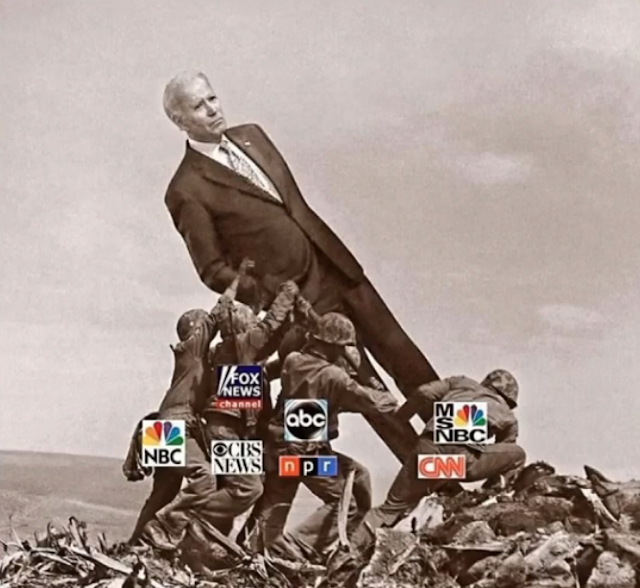Counterpunch, Topic: Russophobia and the Specter of War
Excerpt:
"Could global warming pose the greatest threat to the future of life on the planet? Quite possibly, if we believe the international (and scientific) consensus, despite a widening stratum of debunkers, deniers, and skeptics. What about the prospects of thermonuclear war between the United States and Russia, two countries armed to the max and seemingly moving toward the brink of military conflict? Where does that rate? If the question is asked of most any Beltway denizen, the response might be something along lines of “sounds frightening, but right now we have other priorities, and we can’t lose sight of the Russian threat”.
As American political life continues to deteriorate, matters of war and peace rarely merit attention amidst the sound and fury of manufactured news, moral posturing, personal scandals, and tweeting exchanges. Good for TV ratings and maybe partisan advantage, decidedly less so for addressing issues of political relevance. Now we have two years of frenzied Russiagate and its attendant neo-McCarthyism. That the intensifying hostility directed by one nuclear power toward another might bring the world closer to a war that could end all wars seems bizarrely remote to a political class obsessed with little beyond its own power and wealth, faintly camouflaged by identity politics; the “unthinkable” remains, well, unthinkable.
As anti-Russia hysteria spreads, speech taboos harden; any discourse at odds with tightening official political/media consensus brings immediate blowback, smear-mongering, and (where possible) silencing. It is so obvious that Vladimir Putin is a ruthless, aggressive monster that any dissenting view must be the product of either insanity or Russian propaganda. In this one-dimensional world the recent appearance of Stephen F. Cohen’s important book, War with Russia?, comes with special urgency, Cohen being one of the few public intellectuals to challenge the onslaught of Russophobic narratives churned out relentlessly by the political/media establishment. And he remains virtually alone in going so far as to write about very real specter of nuclear catastrophe.
Longtime scholar of Soviet/Russian studies, Cohen has for years resisted the tide of mindless Russia bashing that gathered steam first, with the 2014 Ukraine events, and then with Trump’s unacceptable rise to the White House. For his informed and dispassionate analysis of Russian history and politics, Cohen has been denounced as “Putin’s number one American apologist”, charged by some for having been “duped” by that great Russian mastermind. Appearing recently on CNN with Anderson Cooper and the neocon warmonger Max Boot, Cohen’s stubborn refusal to see Putin as the worst of all tyrannical evils triggered Boot, who proceeded to attack Cohen for decades of apologetics, followed by a dire warning: “Russia is attacking us right now”. Such is the state of American media discourse that Boot had no need to furnish evidence of any such “attack”, and Cooper was not about to demand it."
Continue reading: Russophobia and the Specter of War
"Could global warming pose the greatest threat to the future of life on the planet? Quite possibly, if we believe the international (and scientific) consensus, despite a widening stratum of debunkers, deniers, and skeptics. What about the prospects of thermonuclear war between the United States and Russia, two countries armed to the max and seemingly moving toward the brink of military conflict? Where does that rate? If the question is asked of most any Beltway denizen, the response might be something along lines of “sounds frightening, but right now we have other priorities, and we can’t lose sight of the Russian threat”.
As American political life continues to deteriorate, matters of war and peace rarely merit attention amidst the sound and fury of manufactured news, moral posturing, personal scandals, and tweeting exchanges. Good for TV ratings and maybe partisan advantage, decidedly less so for addressing issues of political relevance. Now we have two years of frenzied Russiagate and its attendant neo-McCarthyism. That the intensifying hostility directed by one nuclear power toward another might bring the world closer to a war that could end all wars seems bizarrely remote to a political class obsessed with little beyond its own power and wealth, faintly camouflaged by identity politics; the “unthinkable” remains, well, unthinkable.
As anti-Russia hysteria spreads, speech taboos harden; any discourse at odds with tightening official political/media consensus brings immediate blowback, smear-mongering, and (where possible) silencing. It is so obvious that Vladimir Putin is a ruthless, aggressive monster that any dissenting view must be the product of either insanity or Russian propaganda. In this one-dimensional world the recent appearance of Stephen F. Cohen’s important book, War with Russia?, comes with special urgency, Cohen being one of the few public intellectuals to challenge the onslaught of Russophobic narratives churned out relentlessly by the political/media establishment. And he remains virtually alone in going so far as to write about very real specter of nuclear catastrophe.
Longtime scholar of Soviet/Russian studies, Cohen has for years resisted the tide of mindless Russia bashing that gathered steam first, with the 2014 Ukraine events, and then with Trump’s unacceptable rise to the White House. For his informed and dispassionate analysis of Russian history and politics, Cohen has been denounced as “Putin’s number one American apologist”, charged by some for having been “duped” by that great Russian mastermind. Appearing recently on CNN with Anderson Cooper and the neocon warmonger Max Boot, Cohen’s stubborn refusal to see Putin as the worst of all tyrannical evils triggered Boot, who proceeded to attack Cohen for decades of apologetics, followed by a dire warning: “Russia is attacking us right now”. Such is the state of American media discourse that Boot had no need to furnish evidence of any such “attack”, and Cooper was not about to demand it."
Continue reading: Russophobia and the Specter of War

Comments
Post a Comment